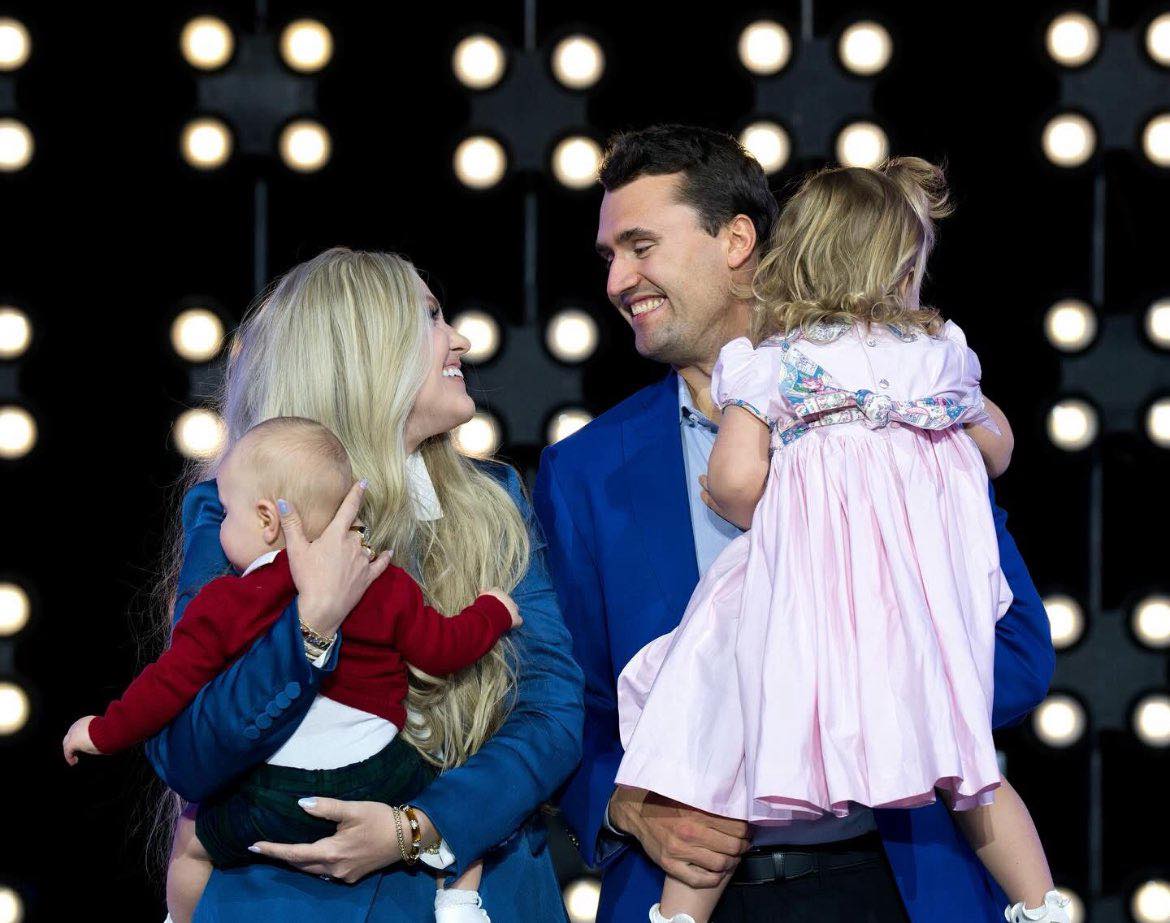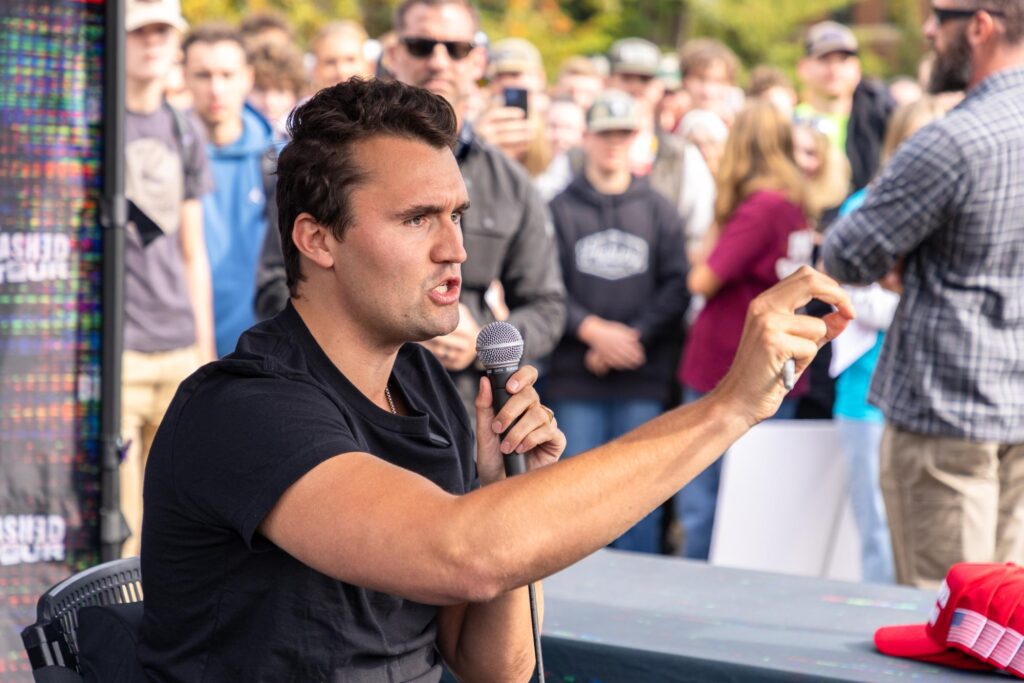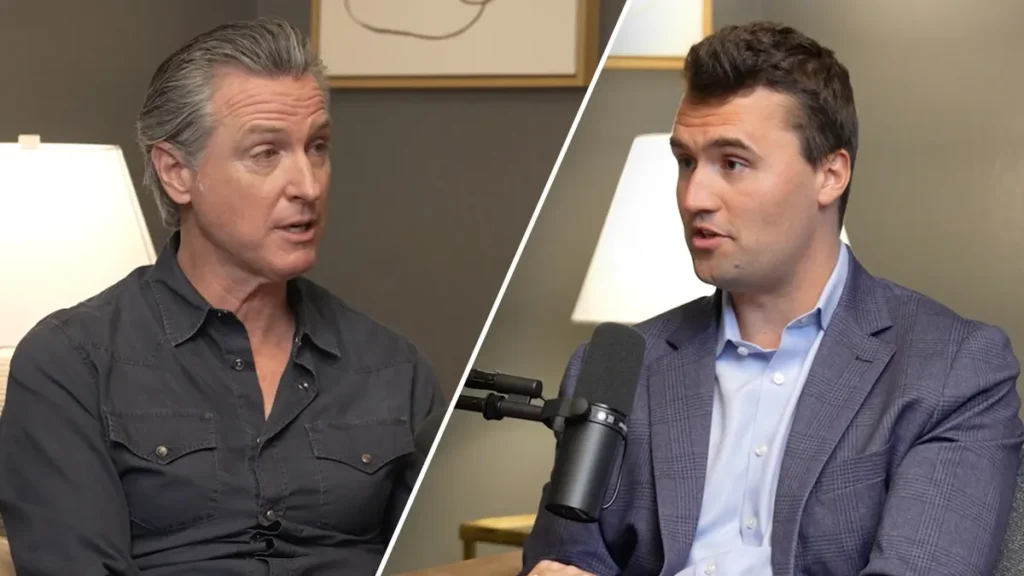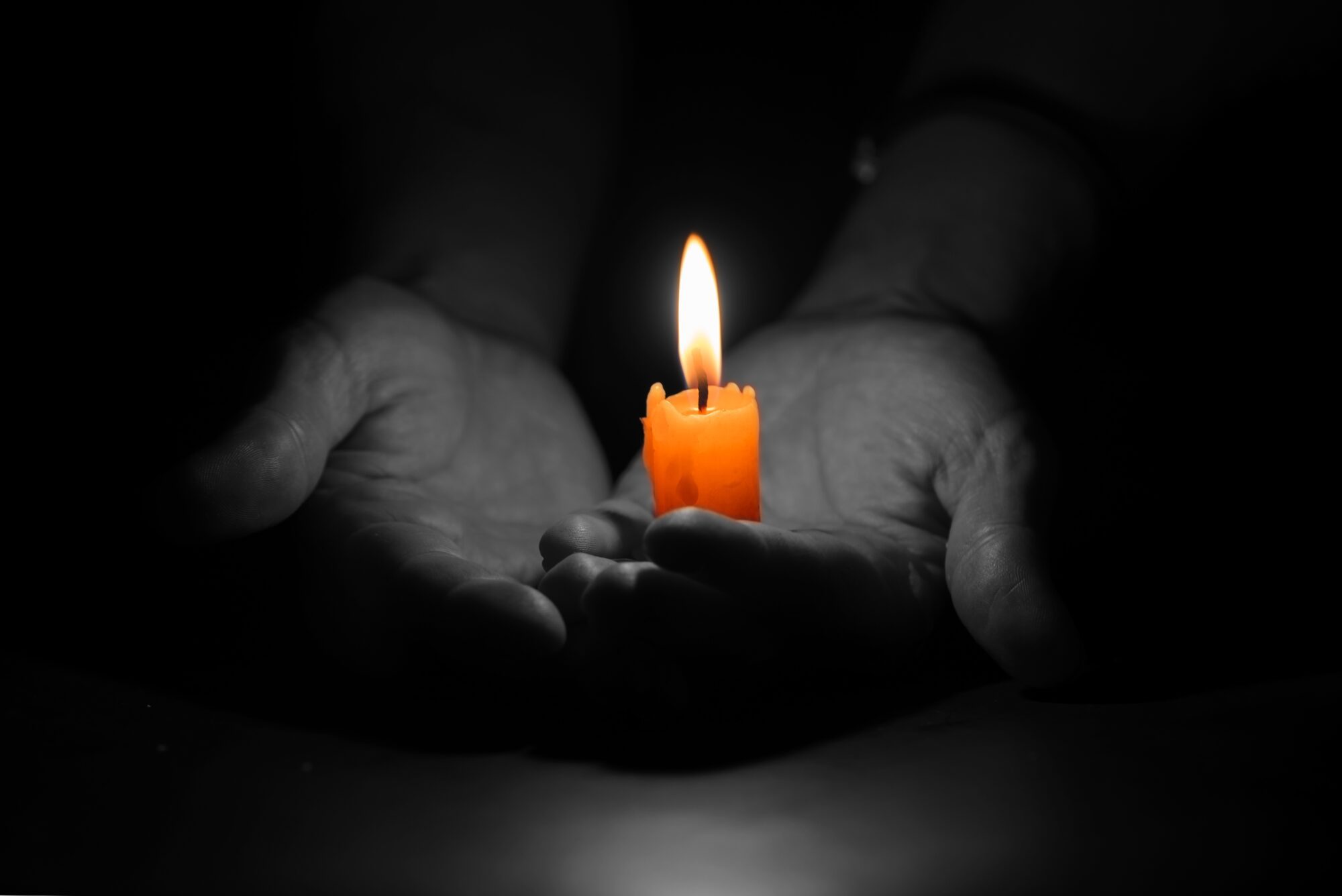
Charlie Kirk with his family.
- We have turned politics into a false god and our political opponents into false satans. In this environment of 24-hour-a-day, graceless outrage, it’s not surprising that tragedies like Wednesday’s are occurring more frequently. We can be better.
Charlie Kirk sat under a tent in Orem, Utah. Before him, a sea of college students from Utah Valley University, as well an assortment of fans and critics from near and far. An estimated 3,000 people gathered for the show.
Prior to the event’s start, Kirk tossed out hats for his “American Comeback” tour and interacted enthusiastically with audience members. The mood was joyful. Now, he found himself in a familiar position, fielding questions and inviting debate on a myriad of political and social issues.
Twenty minutes in, everything changed. A shot rang out. Contemporaneously recorded video from onlookers showed a bullet strike the right side of Kirk’s neck and exit to the left. Anyone unlucky enough to come across those videos saw a devastating wound, almost immediately identifiable as fatal. (It was one of the worst things I’ve ever seen & I wish I had not). Kirk collapsed. Panic ensued.
He succumbed to his injuries. In a surreal moment, the President of the United States announced his death on social media.

Kirk was just 31-years-old. He had a wife and two small children. They are left without a husband and dad. In his short life, he built the most influential conservative organization on college campuses in America, earned the trust and admiration of a sitting president, garnered millions of followers, and offered an unapologetic defense of his faith, traditional social values, and conservative principle — at least as he saw them.
Now Kirk’s tragic death offers a chance at national introspection about the nature of political discourse and how we view people who think differently than us.
Kirk Embodied a Confident Conservatism
In 2012, in the wake of President Barack Obama’s re-election, an 18-year-old Charlie Kirk co-founded Turning Point USA. The stated mission of the non-profit was to “promote the principles of fiscal responsibility, free markets, and limited government.” Kirk nurtured the growth of TPUSA from start-up to behemoth.
Today, the organization claims chapters at more than 850 colleges. It hosts massive conferences with high profile conservative politicians and influencers — up to and including the President. Kirk’s organization helped register tens of thousands of voters in critical battleground states, like Arizona, in the lead up to the 2024 election.
Kirk harnessed the power of both radio — with a nationally syndicated daily show — and of social media. Unlike other influencers within the “new media” right, though, Kirk did not hide in an online echo chamber. His college visits invited open debate and drew thousands of onlookers. He sat down across from the likes of Gavin Newsom and Bill Maher for serious conversations. He even debated at the prestigious Oxford Union earlier this year. He was due to make a trip to Oxford, Mississippi in October.

Earlier this year, the creators of South Park parodied Kirk’s college visits. He didn’t throw a Tom Cruise-level hissy fit. He leaned in. He admitted it was funny.
I agreed with much of what Charlie Kirk believed. I disagreed with some. Other times, I just disagreed with his approach and tenor on things, when there was otherwise substantive agreement. It would be hard to argue, though, that his style did not resonate, both with friend and foe.
My impression is that Kirk welcomed disagreement, or else he wouldn’t have been out debating. At his core, he did not want to silence other viewpoints. He thought they deserved to breathe. That good ideas would beat bad ideas without the help of censorship.
He embodied conservative confidence in the convictions that drove him. He also exposed the increasing dangers of monolithic thinking on college campuses. Often derided by his debate opponents for dropping out of college, Kirk would then proceed to run circles around them, both with logic and facts. It was mostly entertaining, even when I disagreed with him or felt sorry for the poor college kid who stepped up to the mic.
For Kirk to be senselessly murdered on a college campus is tragically poignant. Universities are supposed to be centers of learning, marketplaces of ideas where iron sharpens iron. But in recent years, some in the academy have promoted the notion that words can be violence, that some ideas are too dangerous for free expression. Words are not violence. Treating them as such invites violence. Violence to silence words is violence — the last bastion of weak minds.
The Potential ‘Turning Point’ in Political Discourse
Charlie Kirk believed in God. He was fond of quoting Scripture. Jesus told his disciples to set their minds on the things above — on the kingdom of God — and render unto Caesar the things of Caesar.
But so many of us now conflate our faith with our politics. We have turned politics into a false god and our political opponents into false satans. We see people in our own tribe as being above reproach, often overlooking a great multitude of sins. Meanwhile, we assume the very worst of people in other tribes. We don’t merely disagree, we paint them evil and unredeemable. In this environment of 24-hour-a-day, graceless outrage, it’s not surprising that tragedies like Wednesday’s are occurring more frequently.
Politicians and the media prey on these human trappings. Fear and anger are powerful motivators. They invite eyeballs on screens. They stir people to action.
But when the Bible says we were knit together in the womb by a loving God who made us in His image, it did not mean just those people who look or think like us. And when the Bible says that “all have sinned and fallen short of the glory of God,” it did not mean just those people who look and think different than us. We are all, at once, both created in His image and fallible. The Bible does not say to just “love yourself,” but to “love your enemy and pray for those who persecute you.” It does not call you to extend grace only to the lovable, but to “unlovable” as well.
A proper view of ourselves in relation to God makes it possible to disagree on important political issues, without hating the other person or ascribing malicious motives. I may be naive in thinking this moment could be one where we ratchet down the animus and vitriol. But it feels different. Like a time for choosing. We can either make use of this turning point opportunity, or we can commit ourselves to a world in which political violence festers and grows.










